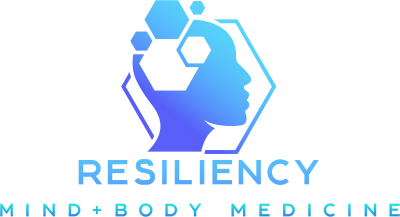Introduction
In recent years, there has been a growing interest in understanding the link between hormonal imbalances and mental health. One such hormone that plays a significant role in men’s mental well-being is testosterone. Beyond its role in physical development, testosterone has been shown to have a profound impact on mental health, specifically in the areas of depression, anxiety, and cognitive performance. In this article, we will explore the benefits of testosterone in the treatment of these conditions, the symptoms of low testosterone, laboratory studies for assessment and monitoring, typical dosing schedules, and why it is crucial for men to get screened for mental health issues related to testosterone levels.
Understanding Low Testosterone
Low testosterone levels, also known as hypogonadism, can occur due to aging, certain medical conditions, or lifestyle factors. When testosterone levels dip below the normal range, it can lead to a myriad of symptoms, including fatigue, reduced libido, irritability, decreased muscle mass, and increased body fat. Importantly, low testosterone has also been linked to mental health issues such as depression, anxiety, and cognitive decline.
The Benefits of Testosterone in Mental Health
- Improved Mood and Reduced Depression: Testosterone therapy has been shown to enhance mood and alleviate symptoms of depression in individuals with low testosterone levels. By restoring hormonal balance, testosterone can contribute to a sense of well-being, leading to a brighter outlook on life and reduced feelings of sadness or hopelessness.
- Decreased Anxiety and Stress: Optimal testosterone levels are associated with reduced anxiety and stress. Testosterone therapy can help individuals feel more relaxed and composed, enabling them to cope better with daily challenges and uncertainties. Reduced anxiety levels can significantly enhance overall mental well-being and quality of life.
- Enhanced Cognitive Function: Cognitive decline is a common concern as people age, but testosterone therapy has shown promise in supporting brain health. Improved cognitive function, including better memory, attention, and problem-solving skills, can lead to increased confidence and a sharper mind, positively impacting mental health. Adequate levels of testosterone can support brain health and prevent cognitive decline, improving overall cognitive abilities in men.
- Boosted Self-Esteem and Confidence: Low testosterone levels can affect self-esteem and confidence, leading to feelings of inadequacy or self-doubt. Testosterone therapy can help individuals regain their self-assurance, empowering them to pursue personal and professional goals with renewed vigor and determination.
Assessment and Monitoring
To assess testosterone levels, doctors typically conduct blood tests to measure total testosterone and free testosterone levels. These tests provide valuable information about the hormonal balance in the body, helping healthcare professionals determine the appropriate course of treatment.
Typical Dosing Schedules
Testosterone replacement therapy (TRT) is a common approach to address low testosterone levels. TRT can be administered through various methods, including injections, gels, patches, or pellets. The choice of administration method depends on individual preferences and medical considerations. Dosing schedules are tailored to each patient’s specific needs, ensuring that testosterone levels are restored to the optimal range.
The Importance of Screening for Mental Health Influences
It is essential for men experiencing symptoms of depression, anxiety, or cognitive decline to consider the possibility of low testosterone levels. Mental health screening, combined with hormonal assessments, can provide a comprehensive understanding of the underlying factors contributing to these issues. Early detection and appropriate intervention, such as testosterone replacement therapy, can significantly improve the quality of life for men struggling with mental health challenges related to low testosterone levels.
Conclusion
The relationship between testosterone and mental health in men is a topic of growing significance within the medical community. As our understanding deepens, so does the potential for improving the lives of men grappling with depression, anxiety, and cognitive decline. By recognizing the symptoms of low testosterone, undergoing proper assessment and monitoring, and exploring appropriate treatment options, men can reclaim their mental well-being and lead fulfilling lives. Testosterone Replacement Therapy has the potential to transform the lives of individuals struggling with mental health issues related to low testosterone levels. By finding a knowledgeable and experienced provider, you can unlock the full spectrum of mental health benefits that TRT offers. Prioritize your well-being by conducting thorough research, asking questions, and seeking recommendations to ensure you receive the best possible care. At Resiliency Mind+Body Medicine, we are experts at identifying and treating the root cause of mental health symptoms, including in-depth hormone assessments to determine if TRT might be an option for our male clients with mental health symptoms.
www.open-band.flywheelsites.com
info@open-band.flywheelsites.com
949-806-6901


